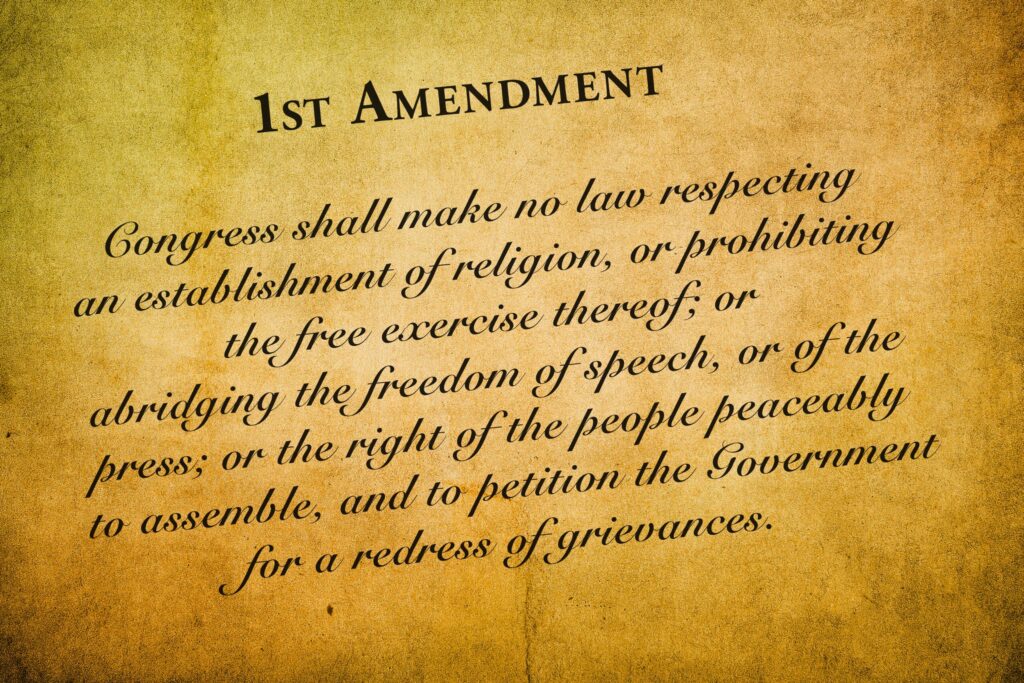The First Amendment stands as a cornerstone of American democracy, safeguarding citizens’ rights to free speech and expression. Yet, while it offers robust protections, these rights are not absolute. In this article, we explore how the First Amendment protects Americans’ speech-ensuring a marketplace of ideas and open political debate-while also outlining the boundaries where speech may be lawfully restricted. Understanding these nuances is essential in a time of evolving communication technologies and ongoing debates over the limits of free expression.
Understanding the Scope and Limits of Free Speech Under the First Amendment
The First Amendment stands as a cornerstone of American democracy, enshrining the right to free speech. However, this protection is neither absolute nor all-encompassing. Courts have consistently drawn lines where speech intersects with harm, balancing individual liberties against public safety and order. For instance, speech that incites imminent violence, constitutes true threats, or involves obscenity is not protected. These exceptions ensure that freedom of expression does not become a shield for actions that could endanger others or disrupt societal norms.
- Prohibited Speech Types: incitement to violence, obscenity, defamation
- Protected Speech: political opinion, symbolic speech, dissenting views
- Special Considerations: speech in schools, government employee statements
| Type of Speech | First Amendment Protection | Common Legal Limit |
|---|---|---|
| Political Speech | Fully Protected | Allows robust debate |
| Hate Speech | Protected, unless inciting violence | Stops where direct harm begins |
| Obscenity | Not Protected | Restricted by community standards |
| Speech in Schools | Limited Protection | Regulated to maintain order |
Understanding these nuances is crucial in a time when speech occurs across diverse platforms, from traditional media to social networks. Protecting free speech means acknowledging its power and limits, ensuring that it fosters dialogue without enabling harm. Legal frameworks continue to adapt, scrutinizing context, intent, and consequences. By recognizing what the First Amendment does and does not cover, Americans can better navigate the complex landscape of expression in the 21st century.
Examining Key Exceptions Where Speech Is Not Protected by Law
While the First Amendment broadly shields Americans from government restraint on speech, there are crucial boundaries where free expression loses its legal shield. Speech that incites imminent lawless action, as established by the Brandenburg v. Ohio decision, falls outside protection. Similarly, true threats, which convey a serious intention to commit violence, are excluded to safeguard public safety. Beyond threats, obscenity-defined by community standards and lacking serious literary, artistic, political, or scientific value-is not protected, reflecting an ongoing tension between free speech and societal norms.
Other categories routinely denied First Amendment safeguards include defamation, particularly libel and slander, where false statements cause damage to an individual’s reputation. The courts also limit speech that invades privacy rights or involves commercial fraud. The following table summarizes some of the main exceptions and their legal rationale:
| Type of Speech | Reason for Exclusion | Legal Precedent |
|---|---|---|
| Incitement to Imminent Violence | Risk of immediate harm | Brandenburg v. Ohio |
| True Threats | Protection from fear and violence | Virginia v. Black |
| Obscenity | Community moral standards | Miller v. California |
| Defamation | Protecting reputation | New York Times Co. v. Sullivan |
| Fraudulent Commercial Speech | Preventing deception | Central Hudson Gas & Electric Corp. v. Public Service Commission |
Practical Steps for Citizens to Exercise and Safeguard Their Speech Rights
To actively protect your speech rights, start by staying informed about the scope and limits of the First Amendment. Understanding that certain categories-such as incitement, obscenity, or defamation-are not protected by free speech can help you navigate discussions more responsibly. Engage in community forums and public debates, making your voice heard while respecting others’ rights. Use social media strategically by sharing verified information and calling out misinformation without resorting to personal attacks or inflammatory language.
Practical actions citizens can take include:
- Participating in peaceful protests and rallies
- Contacting elected representatives to express opinions on laws affecting speech
- Supporting organizations that defend free expression rights
- Educating youth and peers about the nuances of free speech protection
- Documenting and reporting any attempts at unjust censorship or suppression
| Action | Purpose | Outcome |
|---|---|---|
| Peaceful Protest | Express collective opinion | Draw public and media attention |
| Contacting Officials | Influence legislation | Shape policy to protect speech |
| Supporting NGOs | Defend against censorship | Strengthen legal protections |
Future Outlook
In sum, the First Amendment remains a cornerstone of American democracy, safeguarding the right to free speech while delineating crucial boundaries-such as prohibitions against inciting violence, obscenity, and defamation. Understanding both the protections and the limitations of this fundamental right is essential in navigating current debates around speech in an increasingly complex and digital public sphere. As discussions continue, the delicate balance between freedom and responsibility will remain central to upholding the principles upon which the nation was founded.
